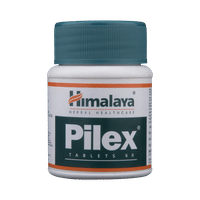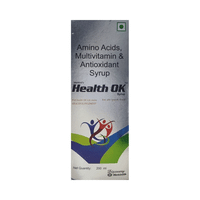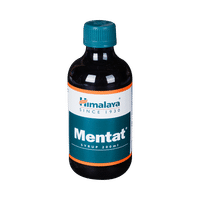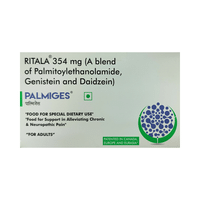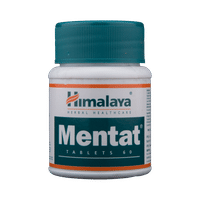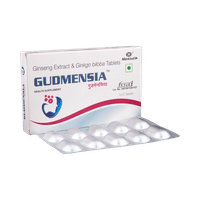Rs.102for 1 strip(s) (10 tablets each)
food interaction for Nebifast A
alcohol interaction for Nebifast A
pregnancy interaction for Nebifast A
lactation interaction for Nebifast A
food
alcohol
pregnancy
lactation
Nebifast A 5mg/5mg Tablet may be taken with or without food, but it is better to take it at a fixed time.
None
None
CAUTION
It is not known whether it is safe to consume alcohol with Nebifast A 5mg/5mg Tablet. Please consult your doctor.
CONSULT YOUR DOCTOR
Information regarding the use of Nebifast A 5mg/5mg Tablet during pregnancy is not available. Please consult your doctor.
CONSULT YOUR DOCTOR
Information regarding the use of Nebifast A 5mg/5mg Tablet during breastfeeding is not available. Please consult your doctor.
CONSULT YOUR DOCTOR
SALT INFORMATION FOR Nebifast A
Nebivolol(5mg)
Uses
Nebivolol is used in the treatment of Hypertension (high blood pressure), heart attack, stroke and migraine.
How it works
Nebivolol is a beta blocker that works specifically on the heart. It works by slowing down the heart rate and makes the heart more efficient at pumping blood around the body.
Common side effects
Headache, Fatigue, Diarrhea, Dizziness, Breathlessness, Hypotension (low blood pressure), Intermittent claudication, Vision impairment, Slow heart rate
Amlodipine(5mg)
Uses
Amlodipine is used in the treatment of Angina (heart-related chest pain), Hypertension (high blood pressure), Arrhythmia, hypertensive emergency, subarachnoid haemorrhage and anal fissure.
How it works
Amlodipine is a calcium channel blocker. In high blood pressure, it normalizes the blood pressure by relaxing the blood vessels to reduce the pressure on them, thereby improving the blood flow in the body. The enhanced blood flow in the body, further relaxes the heart muscles by reducing the workload on the heart. It also improves the oxygen flow in the body, thereby, preventing any heart-related chest pain.
Common side effects
Headache, Nausea, Abdominal pain, Flushing (sense of warmth in the face, ears, neck and trunk), Dizziness, Palpitations, Edema (swelling), Hypotension (low blood pressure), Chest pain, Fainting, Muscle cramp, Visual disturbance, Shortness of breath, Change in bowel habits, Weakness, Insomnia (difficulty in sleeping), Mood changes, Depression, Tremors, Taste change, Hypoesthesia (decreased sensitivity to stimuli), Paresthesia (tingling or pricking sensation), Arrhythmia (irregular heartbeats), Vomiting, Dryness in mouth, Rash, Muscle pain, Back pain, Frequent urge to urinate, Impotence, Breast enlargement in male, Decreased white blood cell count (lymphocytes), Low blood platelets, Allergic reaction, Increased glucose level in blood, Confusion, Hypertonia (increased muscle tone), Pancreatic inflammation, Gingival hyperplasia, Hepatitis (viral infection of liver), Angioedema (swelling of deeper layers of skin), Stevens-Johnson syndrome
SUBSTITUTES FOR Nebifast A
35 Substitutes
35 Substitutes
Sorted By
 Rs. 145pay 28% more per Tablet
Rs. 145pay 28% more per Tablet Rs. 312pay 84% more per Tablet
Rs. 312pay 84% more per Tablet Rs. 250.85pay 122% more per Tablet
Rs. 250.85pay 122% more per Tablet Rs. 204pay 20% more per Tablet
Rs. 204pay 20% more per Tablet Rs. 30save 73% more per Tablet
Rs. 30save 73% more per Tablet
Expert advice FOR Nebifast A
- Nebivolol lowers your blood pressure and makes it easier for your heart to pump blood around your body.
- Lowering high blood pressure helps prevent stroke and heart attack.
- It may cause dizziness. If this happens to you, get up slowly when rising from a sitting or lying position.
- It can hide symptoms of low blood sugar if you are diabetic. Monitor your blood sugar levels regularly.
- Do not stop taking Nebivolol suddenly as it can cause your blood pressure to rise suddenly, thereby increasing the risk of heart attack and stroke.
Frequently asked questions FOR Nebifast A
Nebivolol
Q. How long does Nebivolol take to start working?
After 1 to 2 weeks of starting Nebivolol your blood pressure may decrease. However, it may take 4 weeks to see full benefits.
Q. Now that my blood pressure has become normal, can I stop taking Nebivolol?
No, you should not stop taking Nebivolol even if you start feeling better. Nebivolol controls high blood pressure but does not cure it. If you stop Nebivolol suddenly, you may increase your chances of having angina, heart attack, or irregular heart-beat. Talk to your doctor who may advise you to decrease the dose gradually over 1 to 2 weeks.
Q. What can happen if I take more than the recommended doses of Nebivolol?
Taking more than the recommended doses of Nebivolol may cause very slow heart-beat, low blood pressure with possible fainting, difficulty in breathing or shortness of breath, and acute heart failure. In case you take excess of Nebivolol, contact your doctor immediately.
Amlodipine
Q. How long does it take for Amlodipine to work?
Amlodipine starts working on the day it is taken. However, it may take weeks to see the full effect. You should continue taking the medicine even if you feel better or if you do not notice any considerable difference. Consult your doctor if you have any concerns or you feel worse after taking the medicine.
Q. Does Amlodipine cause itching?
Amlodipine may cause itching in some patients, though it is an uncommon side effect. However, if you experience severe itching contact your doctor.
Q. Is Amlodipine bad for the kidneys?
No, there is no evidence that Amlodipine causes deterioration of kidney problems. Amlodipine can be used in normal doses in patients with kidney problems. In fact, its blood pressure-lowering effect, it helps to prevent injury to the kidneys due to hypertension.














